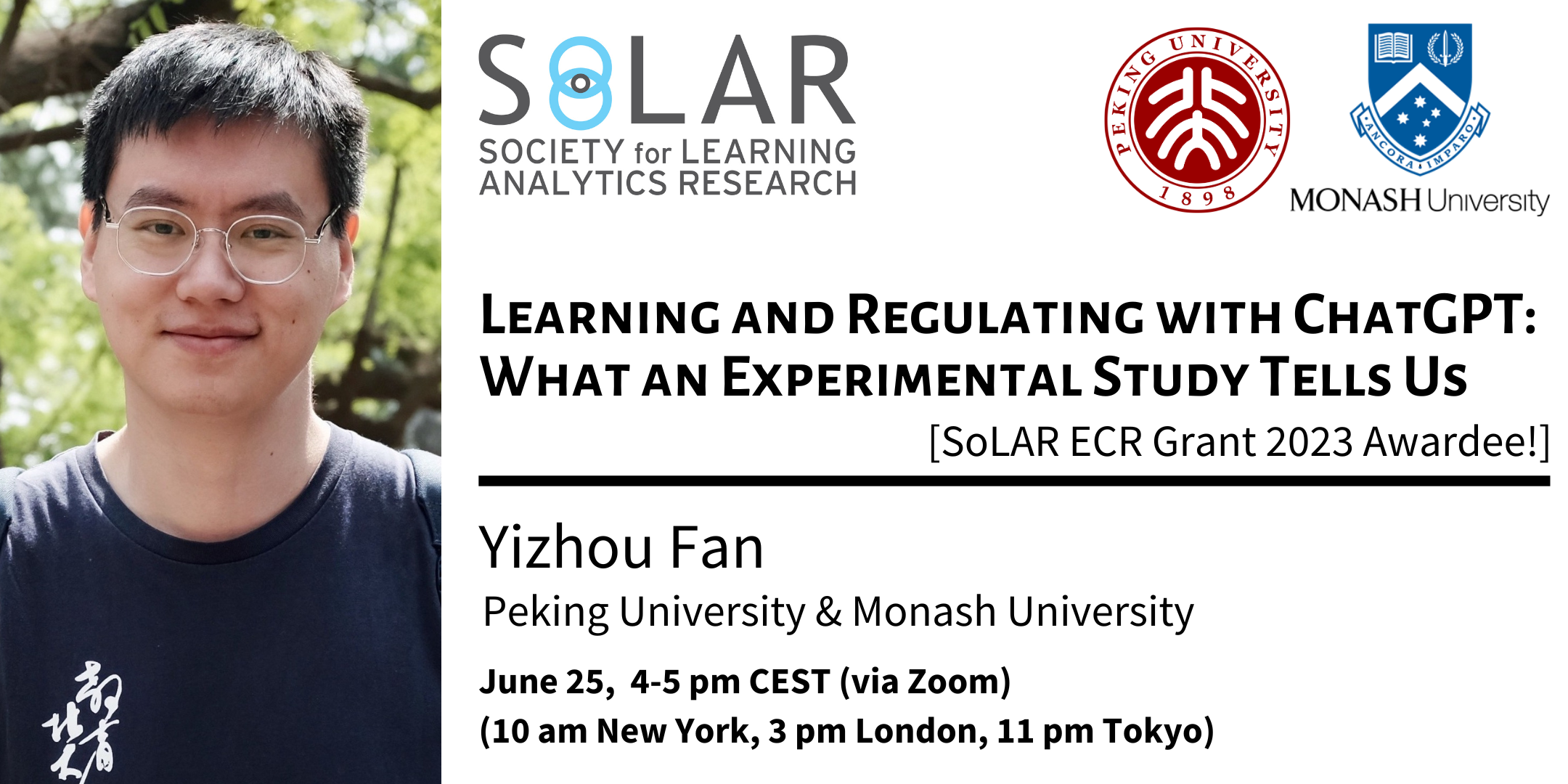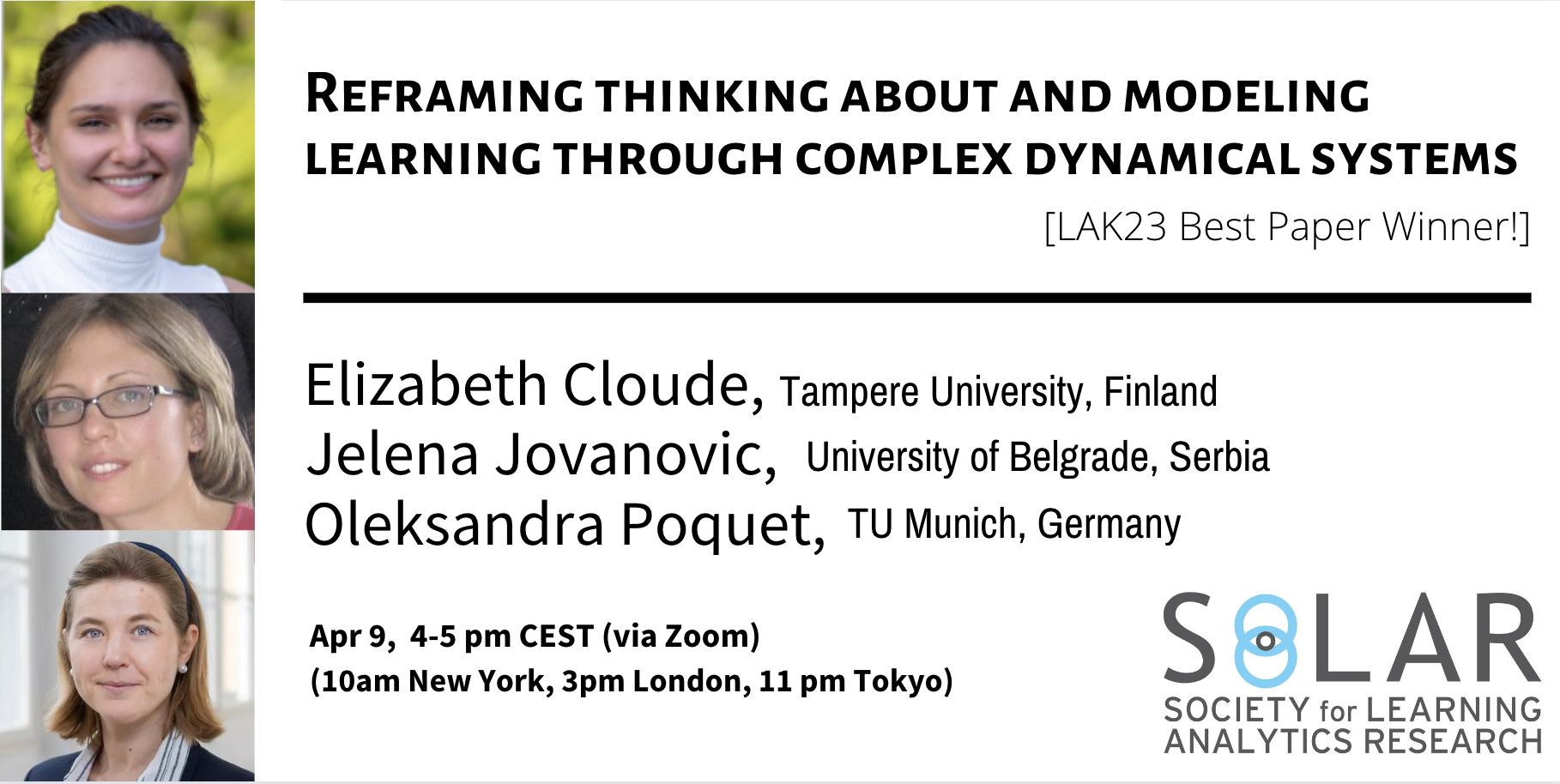September 16, 2024
The SoLAR Executive Committee is pleased to announce the call for nominations for the 2025-2026 Executive Committee. Executive Committee members serve a two year term. Nominations are open for six member at-large positions.
If you are interested in shaping and guiding how SoLAR continues to serve the growing learning analytics community please fill out this short google form with the following information by 5:00 pm EST December 3, 2024:
- Name
- Institution
- Short biography (max 200 words)
- Interest in Learning Analytics (Research Area, etc.) & Interest in serving on the SoLAR Executive Committee (max 200 words)
- SoLAR Working Group Interests – Please let the SoLAR community know which areas within our working groups you would be interested in chairing and/or becoming a member. To review the current SoLAR Working Groups, please review: https://www.solaresearch.org/about/governance/solar-working-groups/
- Photo – jpg suitable for web (200×200)
- SoLAR Membership ID number
If you are unable to submit a google form or have any questions, please email solarsocietymgmt@gmail.com.
Only those who have valid 2025 SoLAR memberships are eligible to nominate and vote for Executive Positions. To be considered as a nominee you must be a member of SoLAR by December 3, 2024, and if elected will need to maintain current membership; to vote in the Executive Committee election you must be a member of SoLAR by December 18, 2024. To renew or join, visit: https://solaresearch.org/membership/
Election Ballots will be sent to all SoLAR Members on December 6, 2024 (EST) and will close on December 20, 2024 (EST).
June 12, 2024
Title: Learning and Regulating with ChatGPT: What an Experimental Study Tells Us
The advances in artificial intelligence (AI) have profoundly transformed and will continue to influence the workforce by automating numerous tasks across various sectors. Consequently, it is vital for students and professionals to develop the capability to “learn and work with AI,” a focus that has increasingly become central in educational paradigms. As the practice and research of AI-assisted learning evolve, a significant advancement in learning analytics is the capacity to measure and understand how learning occurs with AI scaffolding. Nevertheless, empirical research in this area remains nascent, calling for further exploration. In this webinar, Dr. Fan will present his recently concluded SoLAR ECR project, which centers on understanding learners' interactions and regulation using ChatGPT. He and his colleagues conducted an experimental study involving 117 learners, who were randomly assigned to one of four groups, each provided with different forms of learning support (e.g., ChatGPT and human experts). His presentation will share insights into how these groups compare in terms of self-regulated learning processes, help-seeking behaviors, self-assessment skills, and overall learning performance. Additionally, Dr. Fan will discuss the promises and challenges of using generative AI in education that identified in his empirical study.
Presenter:
Yizhou Fan is an Assistant Professor in the Graduate School of Education at Peking University and an Adjunct Research Fellow at the Centre for Learning Analytics at Monash University. He identifies as a learning analyst employing computational techniques to enhance the understanding of self-regulated learning and to develop next-generation learning environments for envisioning future education. In 2023, he received the Emerging Scholars Award and Early Career Research Grant from SoLAR. His recent research focuses on human-AI collaboration and the scaffolding of hybrid intelligence.
May 6, 2024
Current SoLAR Executive Committee for 2024
President - Bart Rienties, The Open University, UK
Vice President - Blaženka Divjak, University of Zagreb, Croatia
Vice President - Olga Viberg, KTH Royal Institute of Technology
Secretary - Ioana Jivet, FernUniversität in Hagen, Germany
Treasurer - Abhinava Barthakur, University of South Australia, Australia
Member at Large - Kathryn Bartimote, University of Sydney, Australia
Member at Large - Rogers Kaliisa, University of Oslo, Norway
Member at Large - Mohammad Khalil, University of Bergen, Norway
Member at Large - Lisa-Angelique Lim, University of Technology Sydney, Australia
Member at Large - Marie Reid, Edulearn Connect, Bahamas
Member at Large - Namrata Srivastava, University of Pennsylvania, USA
The SoLAR Executive is pleased to present the following candidates as nominees for election to the SoLAR Executive for a two -year term. For this 2024 special student election, we have ONE student member positions available.
Please review the following candidate profiles and vote via the surveymonkey email that will be sent to all members.
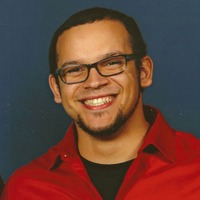 Interest in Learning Analytics (Research Area, etc.) & Interest in serving on the SoLAR Executive Committee: My current interest in Learning Analytics centers on learner-facing analytics and the effective delivery of feedback through digital game systems. I am particularly passionate about "closing the loop," ensuring that learning insights are communicated directly to learners in accessible and actionable ways, ideally through the strategic use of learning games. My previous research has explored collaboration skills and introduced the concept of "subversive learning analytics." As an active member and volunteer at LAK conferences over the past three years, I am deeply committed to the contributions and vision of the SoLAR community. I am eager to transition from a supportive role to a more strategic position on the Executive Committee to help shape the future of Learning Analytics. I aim to foster a robust community for game-based research within SoLAR, advocating for initiatives that empower students with learning analytics through digital games. My background as a former public school teacher and a first-generation graduate student provides me with a unique perspective beneficial to the Executive Committee. Additionally, serving as a representative and liaison from New York University would allow me to further contribute this perspective.
Interest in Learning Analytics (Research Area, etc.) & Interest in serving on the SoLAR Executive Committee: My current interest in Learning Analytics centers on learner-facing analytics and the effective delivery of feedback through digital game systems. I am particularly passionate about "closing the loop," ensuring that learning insights are communicated directly to learners in accessible and actionable ways, ideally through the strategic use of learning games. My previous research has explored collaboration skills and introduced the concept of "subversive learning analytics." As an active member and volunteer at LAK conferences over the past three years, I am deeply committed to the contributions and vision of the SoLAR community. I am eager to transition from a supportive role to a more strategic position on the Executive Committee to help shape the future of Learning Analytics. I aim to foster a robust community for game-based research within SoLAR, advocating for initiatives that empower students with learning analytics through digital games. My background as a former public school teacher and a first-generation graduate student provides me with a unique perspective beneficial to the Executive Committee. Additionally, serving as a representative and liaison from New York University would allow me to further contribute this perspective.
Biography: Maurice Boothe Jr. is a learning designer, researcher, and former high school teacher. He holds a BA in Spanish Education from the University of Wisconsin-Madison, a Master’s Certificate in Learning Sciences, Media, and Technology from Indiana University, and an MA in Learning Technology Experience Design from New York University. Maurice is currently pursuing a PhD in Educational Communication and Technology at New York University while working full-time as an Instructional Technologist at NYU Meyers College of Nursing. Maurice has made contributions to the field of Learning Analytics in collaboration and games research as well as received the Best Short Paper Award with Wise et al in LAK '21. He has also been a committed volunteer at LAK for several years. Maurice is also recognized as a Gates Millennium Scholar, a UW-Madison Chancellor’s Scholar, and has received the Samuel Eshborn Service Award from NYU. His current research explores the intersection of game-based learning and learning analytics, exploring the ways that feedback can be delivered to learner using games.
Working Group Interests: The groups that interest me most are: Inclusion Working Group, Events Working Group, ECR Research Grant Working Group, and Membership Working Group.
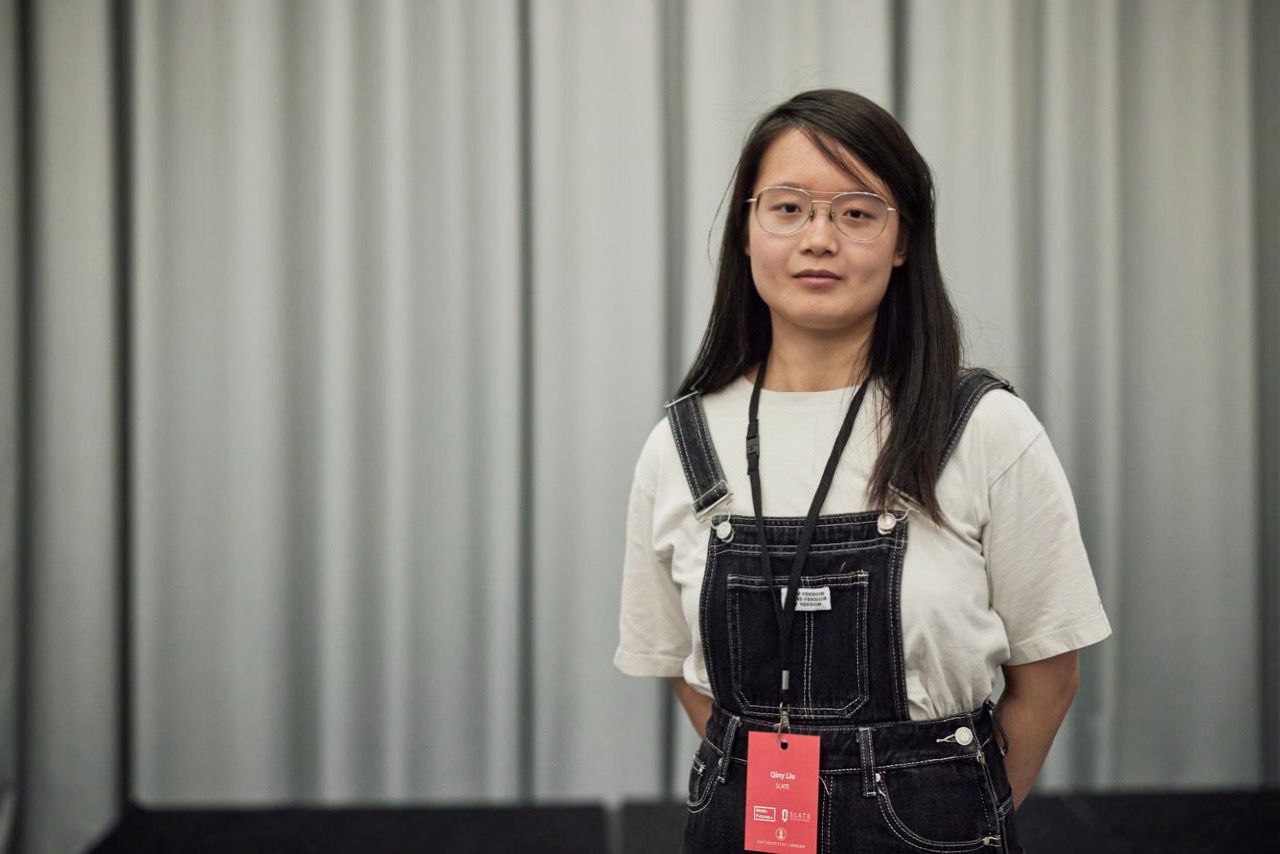 Interest in Learning Analytics (Research Area, etc.) & Interest in serving on the SoLAR Executive Committee: Qinyi Liu's research focuses on learning analytics, particularly on the escalating privacy and data protection issues within the field. Her Ph.D. project aims to promote the trustworthiness of learning analytics systems using advanced privacy-enhancing technologies and generative artificial intelligence, facilitating the continued scalability vision of learning analytics. Moreover, she is dedicated to making privacy solutions in learning analytics more accessible, allowing individuals to utilize these solutions freely and without prior programming knowledge. Qinyi is committed to learning analytics and aspires to contribute as a member of the SOLAR Executive Committee. Qinyi's journey with SOLAR began at the early start of her doctoral career, of which in just two years, she published her first paper at LAK, successfully qualified to participate in the Doctoral Consortium, and won two Best Poster Awards two years in a row. She aims to maintain her active contribution to SOLAR, supporting numerous students who, like her, are newcomers to this community.
Interest in Learning Analytics (Research Area, etc.) & Interest in serving on the SoLAR Executive Committee: Qinyi Liu's research focuses on learning analytics, particularly on the escalating privacy and data protection issues within the field. Her Ph.D. project aims to promote the trustworthiness of learning analytics systems using advanced privacy-enhancing technologies and generative artificial intelligence, facilitating the continued scalability vision of learning analytics. Moreover, she is dedicated to making privacy solutions in learning analytics more accessible, allowing individuals to utilize these solutions freely and without prior programming knowledge. Qinyi is committed to learning analytics and aspires to contribute as a member of the SOLAR Executive Committee. Qinyi's journey with SOLAR began at the early start of her doctoral career, of which in just two years, she published her first paper at LAK, successfully qualified to participate in the Doctoral Consortium, and won two Best Poster Awards two years in a row. She aims to maintain her active contribution to SOLAR, supporting numerous students who, like her, are newcomers to this community.
Biography: Qinyi Liu is an energetic, motivated PhD candidate based at the Centre for the Science of Learning & Technology (SLATE) at the University of Bergen in Norway. Qinyi’s research is at the forefront of using data-driven approaches to enhance the trustworthiness of learning analytics and education data science, focused more on data-driven approaches. She has received the Best Poster Award twice at the International Conference of Learning Analytics and Knowledge (LAK) and is currently serving as a guest editor for the British Journal of Educational Technology that draws attention towards enhancing learning at scale using generative artificial intelligence. Qinyi's previous professional career includes impactful roles such as serving as a Researcher for the COVID Governance and Data Protection project at the University of Edinburgh, and as a Research Coordinator at the University of North Carolina Chapel Hill. Her past roles have provided her with extensive expertise in both data protection and digital platforms development. In Qinyi's doctoral project, she is dedicated to mapping known learning analytics privacy issues and providing generative artificial intelligence-based solutions that are developed into a free, open-source, and user-friendly platform for the community to use.
Working Group Interests: Events working group, Special Interest Groups working group
 Interest in Learning Analytics (Research Area, etc.) & Interest in serving on the SoLAR Executive Committee: I am interested in serving on the SoLAR executive committee, because I see a future in attending the conference regularly as an academic researcher or early career researcher. I am interested in organizing events that facilitate networking nad resarch collaborations as well as improve the overall quality of the conference and other events organized by SoLAR community such as LASI and LAP.
Interest in Learning Analytics (Research Area, etc.) & Interest in serving on the SoLAR Executive Committee: I am interested in serving on the SoLAR executive committee, because I see a future in attending the conference regularly as an academic researcher or early career researcher. I am interested in organizing events that facilitate networking nad resarch collaborations as well as improve the overall quality of the conference and other events organized by SoLAR community such as LASI and LAP.
Biography: I am a PhD Student in the Intelligent Systems Program at the University of Pittsburgh. My current research is on developing personalized educational technologies for students in undergraduate computer science. I develop backend ML models for AI based intelligent User interfaces for students to receive feedback on their interactions. Specifically, in the context of introductory programming interfaces. My research is in the topic of applied AI in education, particularly in the topics of data analysis, data mining, machine learning and natural language processing. I also work with developing intelligent textbooks. Our lab website is available at http://adapt2.sis.pitt.edu/wiki/PAWS.
Working Group Interests: I am interested in the Special Interest Group WGs
Voting Information: All SoLAR individual and students members are eligible to vote. Links to access the online voting system will be sent to SoLAR members through SurveyMonkey via email starting on May 6, 2024 (EST). Voting will end on May 13, 2024 at 8:00pm Eastern. All members who join SoLAR by May 10, 2024 will be eligible to vote and will receive a ballot after successfully joining SoLAR. Any questions, please email solarsocietymgmt@gmail.com.
May 1, 2024
The SoLAR Executive Committee and ECR Grant Working Group is pleased to announce the deadline extension for the Early Career Research Grant. Applications are now due May 17, 2024 by 5pm EDT.
Purpose
The SoLAR ECR Research Grant serves to support promising early career researchers who demonstrate the potential to advance research and practice in learning analytics and increase the educational and socio-economic impacts of learning analytics. Proposed projects should improve our understanding of learning analytics and learning in general, result in positive impacts on education, and align with the topics identified for the current round. It is expected that the ECR grant will help successful applicants develop their career by enabling an initiative that is scalable or has potential to attract further funding.
Applicant eligibility
Applications from individuals based in academic or not-for-profit organizations are welcome, provided the individuals hold valid SoLAR membership when applying and for the term of the project. Applicants need to have been awarded with a PhD qualification no longer than 5 years prior to the application deadline. Each applicant may only submit one application, and each application can only have one named applicant. Past awardees or current SoLAR executive committee members are not eligible to apply.
2024 Themes - The role of learning analytics in the age of Artificial Intelligence
As interest in AI, and especially generative AI, in education continues to rise rapidly, ethical considerations and challenges of inclusion remain important issues for the field (Bond et al., 2024). The field of learning analytics can contribute to these issues by providing a synergised framework that grounds AI innovation and methodology in learners and learning (Yan et al., 2024). This positioning opens up promising avenues of research to bring the two fields together. We welcome proposals of research that showcase the practicalities, possibilities and challenges in integrating these two fields to foster ethical use of genAI in education as well as to mitigate the digital divide. Example topics include, but are not limited to:
- Understand the impact of AI technologies on student learning and teaching;
- Identify innovative AI driven methodologies and tools to gain insights into learning;
- Understand how AI technologies impact different strands of learning analytics research, e.g., personalised feedback, writing analytics research, self-regulated learning, etc.;
- Explore how learning analytics can be used to foster insights into new AI literacies, such as prompt engineering;
- Explore the role of learning analytics in futures literacy;
- Examine how generative AI impacts learning and assessment, and how learning analytics can help;
- Make sense of the intersections of humans and AI in practices of learning analytics;
- Enhance the use of learning analytics with explainable AI;
- Evaluate the impact of learning analytics on institutional strategy development and monitoring;
- Explore how institutions navigate ethical considerations of AI when adopting learning analytics;
- Explore how to ensure trustworthiness of learning analytics and AI in education in parallel with data protection and informed consent of data owners;
- Understand ways that algorithmic fairness & biases in AI technologies may affect learners.
- Explore ways learning analytics may incorporate AI to tackle major challenges in education, such as educational equity and quality.
Level of award
A total of $15,000 CAD is available to fund one to two projects. Funds will be managed directly by SoLAR via approved expense invoices.
Awardee(s) will also receive publicity via SoLAR’s channels to help them connect with the community, complimentary registration for a regional Learning Analytics Summer Institute (LASI) or LAP event, and the International Learning Analytics and Knowledge Conference (LAK).
For more information on eligible costs, criteria and selection process and the application guidelines, please review the ECR Grant webpage.
April 18, 2024
The SoLAR Executive Committee is pleased to announce the call for nominations for a special election for a student representative to the 2024-2025 Executive Committee. Executive Committee members serve a two year term. Nominations are open for one student representative.
If you are interested in shaping and guiding how SoLAR continues to serve the growing learning analytics community please fill out this short google form with the following information by 11:59 pm EST May 1, 2024:
- Name
- Institution
- Short biography (max 200 words)
- Interest in Learning Analytics (Research Area, etc.) & Interest in serving on the SoLAR Executive Committee (max 200 words)
- SoLAR Working Group Interests – Please let the SoLAR community know which areas within our working groups you would be interested in chairing and/or becoming a member. To review the current SoLAR Working Groups, please review: https://www.solaresearch.org/about/governance/solar-working-groups/
- Photo – jpg suitable for web (200×200)
- SoLAR Membership ID number
If you are unable to submit a google form or have any questions, please email solarsocietymgmt@gmail.com.
Only those who have valid 2024 SoLAR memberships are eligible to nominate and vote for Executive Positions. To be considered as a nominee you must be a member of SoLAR by May 1, 2024; to vote in the Executive Committee election you must be a member of SoLAR by May 10, 2024. To renew or join, visit: https://solaresearch.org/membership/
Election Ballots will be sent to all SoLAR Members starting on May 6, 2024 (EST) and will close on May 13, 2024 (EST).
**Note to nominees: To confirm, each nominee must hold a valid 2024 STUDENT membership within SoLAR to stand for the executive committee election. If your institution is an institutional member, you must still register as a student using your institutional discount code that would have been sent to your institutional representative. If you have any questions regarding membership, please contact us at solarsocietymgmt@gmail.com.
**We are currently experiencing an issue with our membership system. Our support teams are working on it and hope to have it resolved soon. If you have a question on this, please reach out.
April 3, 2024
Title: Reframing thinking about and modeling learning through complex dynamical systems
Learning is a highly individual process of change that emerges from multiple interacting components (e.g. cognitive, social) that occur at varying levels (e.g., individual, group) and timescales (e.g. micro, meso, macro) in constantly changing environments. Due to its complexity, the theoretical assumptions that describe learning are difficult to computationally model, and many existing methodologies are limited by conventional statistics that do not adhere to these assumptions. In recent years, the learning analytics community has explored the potential of complex dynamical systems for modeling and analyzing learning processes. Complex dynamical systems (CDS) approach refers to theoretical views, largely from physics and biology, that preserve the complexity of learning and could be potentially useful in studying socio-/ technical-/ material-/ symbolic systems that learn.
The integration of CDS into analytical and methodological tenets of LA research is ongoing. Yet, CDS concepts and accompanying methods remain mostly “under the radar” of a larger learning analytics community. In this webinar, we will introduce the main theoretical underpinnings and methodological toolkit of CDS, and highlight their relevance to and potential integration with learning analytics. We will present key opportunities for thinking about and modeling learning through CDS concepts and briefly review CDS-inspired research from works-in-progress presented at the latest workshop on CDS in learning analytics.
Presenters:
Elizabeth Cloude, Tampere University | Jelena Jovanovic, University of Belgrade | Oleksandra Poquet, Technical University of Munich
Bios
Elizabeth B. Cloude is a recipient of the Marie Skłodowska-Curie Postdoctoral Fellowship funded by the European Union and is affiliated with the Faculty of Education and Culture and Gamification Group at Tampere University in Finland. Elizabeth’s research specializes in studying self-regulated learning as a non-linear dynamical system with educational technologies. Her focus is on collecting, processing, and analyzing multimodal data (e.g., eye movements, log files, physiology, concurrent verbalizations, facial expressions of emotions) to study the complex nature of learning and emotions across activities to build adaptive, intelligent systems. She was previously a postdoctoral scholar within the Penn Center for Learning Analytics at the University of Pennsylvania and holds a Ph.D. from the University of Central Florida. Elizabeth has contributed to various peer-reviewed publications, including the Cognitive Science Society, International Learning Analytics and Knowledge Conference, European Association for Research on Learning and Instruction, and IEEE Transactions on Affective Computing.
Jelena Jovanovic is a Professor at the Department of Software Engineering, University of Belgrade, Serbia. She is also an Adjunct Professor in the Centre for the Science of Learning & Technology (SLATE) at University of Bergen, Norway, and an Adjunct Professor in the Centre for Learning Analytics at Monash (CoLAM), Monash University, Australia. Her current research focus is on the use of computational approaches, including statistical and machine learning methods and techniques, network analysis, and text analytics, towards better understanding and supporting learning, primarily self-regulated learning in higher education settings. Currently she serves as Advisor to the Editor-in-Chief of IEEE Transactions on Learning Technologies and Editorial Board member of Journal of Learning Analytics, Journal of Educational Data Mining, and Computers & Education: Artificial Intelligence. She has been one of the faculty leads for the three latest Doctoral Consortia at the Learning Analytics and Knowledge conference.
Oleksandra Poquet (Sasha Poquet) is a tenure-track professor in learning analytics at the School of Social Sciences and Technology, Technical University of Munich in Germany. She leads a LEAPS research group that studies Learning Analytics and Practices in Systems. Her current research focuses on creating impactful technology-based interventions using learning analytics that support agency and social networks in higher education and workplace training. Prof Poquet is a core member of the Munich Data Science Institute and an affiliate of the Centre for Change and Complexity in Learning, University of South Australia.
March 13, 2024
How can a data driven LA/AI tool support people facing educational transitions and decisions? This study investigated users’ experiences with a recommendation system suggesting study programs based on unique user data and found that users regard LA/AI as a supportive asset in the face of educational transitions and decisions.
January 25, 2024
Current SoLAR Executive Committee for 2024
Student Member - Adele Smolansky, Cornell University, USA
 Abhinava Barthakur, Australia
Abhinava Barthakur, Australia
University of South Australia
Interest in Learning Analytics (Research Area, etc.) & Interest in serving on the SoLAR Executive Committee: My interest in Learning Analytics stems from its transformative potential to understand and support learning. This interest has translated to being actively engaged with the LA community and helping organise the International Conference on Learning Analytics and Knowledge (LAK) on several occasions. I served as the LAK Proceedings Editor in 2021 and LAK Proceedings Co-chair in 2022 and 2023. I am also one of the production editors for the Journal of Learning Analytics (JLA), further demonstrating my commitment to advancing the field. I believe that strong connections between researchers and practitioners are essential for LA to reach its full potential. By serving on the SoLAR executive committee, I would ensure that research findings are translated into actionable solutions for educators and would work to bridge the gap between research and practice.
Biography: Dr Abhinava Barthakur is an Early Career Researcher at the University of South Australia and affiliated with the Centre for Change and Complexity in Learning. He completed his PhD in 2023 in the field of learning analytics. Dr Barthakur’s research focuses on developing novel human-centred assessment models for measuring complex competencies. In doing so, he utilises various data science and psychometrics models to provide diagnostic information about student learning within higher education and in the context of professional learning. Dr Barthakur leads projects examining students’ development of broader competencies and learning outcomes and believes in the holistic representation of students’ success. His research has substantially impacted the education community, as evidenced by his impressive publication record. He has demonstrated a commitment to advancing knowledge in education technology research through the publication of several manuscripts in a short period of time. With a normalised citation impact of 1.6 (Web of Science), his work has clearly resonated with fellow researchers and practitioners.
Working Group Interests: Education, ECR and Communication
 Hector Gibran Ceballos Cancino, Mexico
Hector Gibran Ceballos Cancino, Mexico
Tecnologico de Monterrey
Interest in Learning Analytics (Research Area, etc.) & Interest in serving on the SoLAR Executive Committee: At Tecnologico de Monterrey, I’m on charge of a Data Hub that annonymizes academic data for research purposes. We have worked on Student Dropout prevention by not only identifying the main factors for dropout but identifying accurate intervention oportunities. With a doctoral student we are applying Explainable AI for identifying differences between populations in the same context, applied for understanting the effects of an intervention on student retention. On the other side, I’m developing a system for identifying Skill Gaps using Natural Language Processing over CVs, Job postings and Syllabus. Also I’m interested in MultiModal Learning Analytics due to a research project on Cyber-Physical Learning in collaboration with universities in Asia and Europe. First results in this project has allowed us to identify have an accuracy of 0.8 for detecting cognitive load using a portable EEG. I’m interested in participating in the early-career researchers working group. I have conducted research on the detection of academic rising stars using Machine Learning. From this experience I observed which features are predictors of outstanding performance, which could in turn be used for designing research strategies for ECRs.
Biography: Hector G. Ceballos is Director of the Living Lab & Data Hub of the Institute for the Future of Education (IFE) at Tecnologico de Monterrey, Mexico. Previously he was head of the Scientometrics office at the Research Vice-Rectory of Tecnologico de Monterrey for 18 years. Hector has a Masters and a PhD on Intelligent Systems by Tecnologico de Monterrey (2010). He is full-time faculty of the Computer Science Graduate Program (DCC) and he is ascribed to the Research Group on Advanced Artificial Intelligence. Hector is a member of the Mexican National System of Researcher (SNI) and adherent member of the Mexican Academy on Computing (AMEXCOMP). Hector is an Organizing Committeee Chair of the SOLAR SIG in Learning Analytics in Latin America (LALA-SIG), and member of the QS EduData Summit Advisory Committee. He’s PI of two research projects: Ethical Challenges for AI and Cyber-Physical Learning (collaboration with SUTD). His main research interests include Machine Learning, Data Science, Natural Language Processing and Causality, applied to Research and Learning Analytics. He is author of more than 30 papers in journals and conferences and has worked as expert consultant for bank and IT companies.
Working Group Interests: ECR Research Grant Working Group
 Guanliang Chen, Australia
Guanliang Chen, Australia
Monash University
Interest in Learning Analytics (Research Area, etc.) & Interest in serving on the SoLAR Executive Committee: Dr. Guanliang Chen is deeply committed to enhancing diversity and inclusivity in both educational and research environments, as demonstrated by his research and the prestigious awards he has received. This commitment will guide his efforts to increase diversity within the Society. Besides, his prior experience in organising major academic events equips him with the skills necessary for efficient conference organization. Additionally, his experience in publishing and editorial work positions him well to support and mentor early career researchers, fostering their growth and encouraging innovative contributions to the field.
Biography: Dr. Guanliang Chen is a Senior Lecturer at Monash University’s Centre for Learning Analytics, within the Faculty of Information Technology. Dr. Chen’s research is at the forefront of integrating advanced learning analytics and artificial intelligence technologies to promote fairness and inclusivity in education. He has over 60 peer-reviewed quality papers, including 7 accepted in LAK, amassing more than 2,200 citations, with an h-index of 23 and an h10-index of 30. Dr. Chen’s solid work in identifying and reducing algorithmic bias in educational contexts has earned him significant recognition. He received the Outstanding Paper award at the 29th International Conference on Computational Linguistics in 2022, and the Dean’s Award for Equity, Diversity, and Inclusion (Research) from Monash University’s Faculty of Information Technology in both 2021 and 2023. He is an editorial board member for two leading journals in technology-enhanced education, including ‘Computers & Education: Artificial Intelligence’ (a Q1 journal), and a key organiser for several international academic events such as International Conference on Artificial Intelligence in Education.
Working Group Interests: Inclusion Working Group, Events Working Group, ECR Research Grant Working Group
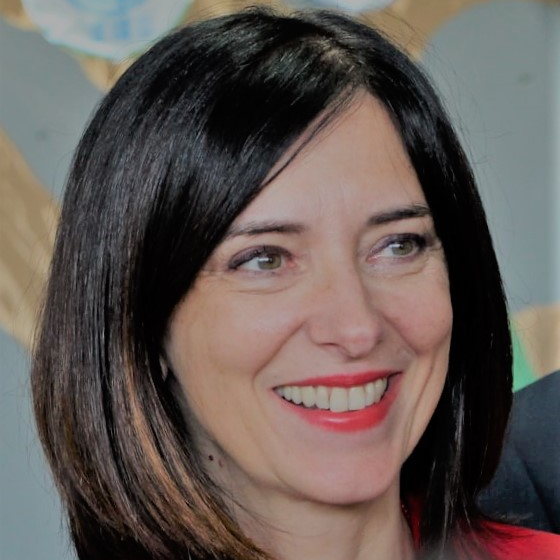 *Blaženka Divjak, Croatia
*Blaženka Divjak, Croatia
University of Zagreb
Interest in Learning Analytics (Research Area, etc.) & Interest in serving on the SoLAR Executive Committee: I have been a member of the SOLAR Executive Committee in the ongoing mandate, as well as a Vice-President of SOLAR, so I believe that experience provides me with solid grounds for further contribution to SOLAR. My interest in learning analytics started in 2012, when I served as the Vice-Rector of the University of Zagreb. As the University encompasses more than 70.000 students, obtaining and analysing learning data was of utmost importance for enhancing the quality of teaching and learning. My mathematical background and interest in e-learning supported my intense engagement in the area of learning analytics, which continues to date. Between 2015 and 2017, I was engaged in a nation-wide project “eSchools”, in which I coordinated the design of the national learning analytics system for primary and secondary schools. I have taken part in a number of projects dealing with learning analytics and one of my current interests relates to linking learning analytics with learning design, as well as AI in education. Finally, I think my engagement in strategic decision-making, my expertise gained through more than 30 years of teaching, as well as interdisciplinary research related to learning analytics, can provide a solid foundation for me to continue serving as a member of the SoLAR Executive Committee.
Biography:Professor Blaženka Divjak, PhD, is a Full Professor of Mathematics and Information Science at the University of Zagreb, Faculty of Organization and Informatics. She served as Vice-Rector for students and study programs at the University of Zagreb (2010-2014). She was the Croatian Minister of Science and Education (2017-2020). She chaired the EU Council of ministers for education and Council of ministers for research and space during the Croatian presidency (January – June 2020). In that period, she coordinated the EU response to the COVID-19 crises in education and research. She has been a coordinator/researcher in over 30 (inter)national projects. Currently, she coordinates the “Innovating Learning Design in Higher Education” Erasmus+ project, as well as the “Trustworthy Learning Analytics and Artificial Intelligence for Meaningful Learning Design” funded by the Croatian Science Foundation, both of which research learning analytics. She has led the research group designing the concept and the accompanying Balanced Learning Design Planning tool, used in more than 30 countries. Besides being a Vice-President of SOLAR, she is also a member of the Advisory Board of GRAILE. Her area of expertise, besides mathematics, includes curriculum development, e-learning, learning design, assessment, learning analytics, strategic decision-making and AI in education. CV: https://www.foi.unizg.hr/en/staff/blazenka.divjak
Working Group Interests: Education, Nexus, Industry and Partnerships
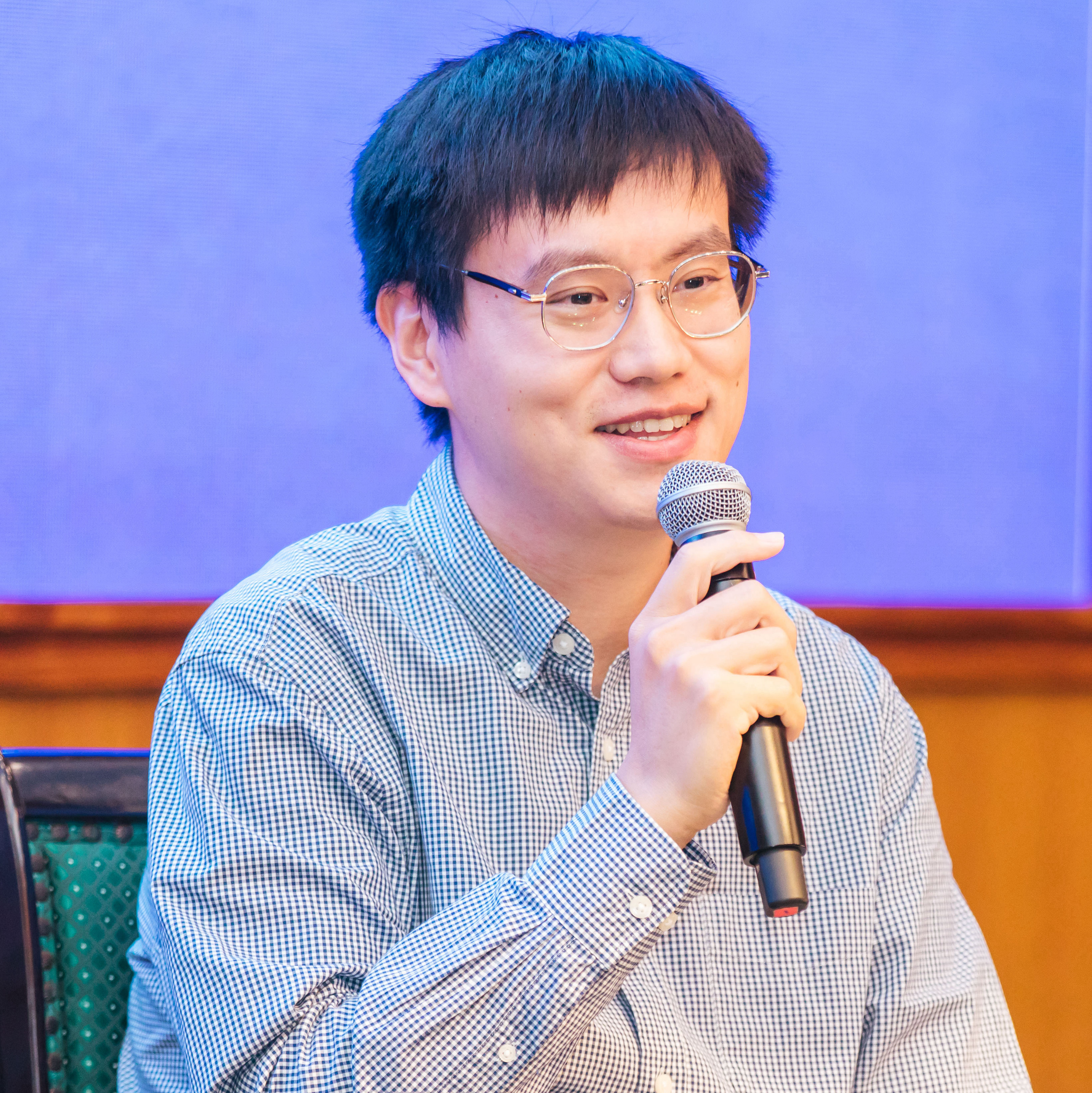 Yizhou Fan, China
Yizhou Fan, China
Peking University
Interest in Learning Analytics (Research Area, etc.) & Interest in serving on the SoLAR Executive Committee: His research interests are self-regulated learning, learning design, learning strategies, dialogic education, and multimodal learning analytics. Dr. Fan’s recent work focuses on understanding and constructing innovative learning theories to explain, predict and scaffold how humans can better regulate and collaborate with machines (e.g., generative artificial intelligence) to achieve smart learning. His interest in serving on the SoLAR Executive Committee is to disseminate learning analytics-related research and practice through internal and external communications of the society, and to promote, elevate and foster an open and inclusive research environment of learning analytics. In particular, through broader information sharing and more inclusive mechanism design, Dr. Fan wishes to prompt the SoLAR community and learning analytics research in relatively underrepresented areas, such as Asia.
Biography: Yizhou Fan is an Assistant Professor in the Graduate School of Education at Peking University and an Adjunct Research Fellow in the Centre for Learning Analytics Monash at Monash University. He received his PhD in Educational Technology from Peking University in 2019, and prior to the current post, he was a post-doc research associate in the School of Informatics at the University of Edinburgh. Yizhou considers himself a learning analyst using computational techniques to advance the understanding of self-regulated learning, and developing next-generation learning environments to picture future education. He has authored more than 40 publications with over 20 co-authors, including a range of original work on measuring, analysing and scaffolding self-regulated learning. His doctoral thesis was awarded the Excellent Dissertation Award for Educational Research in China (2019), and in 2023, he received the Emerging Scholars Award from SoLAR. From 2021, Yizhou served as an active member of the SoLAR Communications Working Group and contributed to the creation and dissemination of the SoLAR Newsletters. In addition, he also helped promote information such as SoLAR webinars and the LAK conferences by managing the SoLAR mailing lists. In 2022 and 2024, Yizhou served the LAK conferences as Publicity Chair.
Working Group Interests: Communications Working Group
 Marie Reid, Bahamas
Marie Reid, Bahamas
EduLearn Connect
Interest in Learning Analytics (Research Area, etc.) & Interest in serving on the SoLAR Executive Committee:I am an advocate for decentralized education and learning models, closely aligning with Learning Analytics for self-regulated learning (SRL). This is particularly relevant in my home region, the Caribbean, where traditional educational methods are still prevalent. The transition to strategies that empower learners to adapt and excel in an age dominated by AI and automation is vital. Such a change is equally globally essential, equipping individuals with the necessary ‘learn how to learn’ skills in our ever-changing world. My social innovation research project, EARLY BRRD, embodies this commitment, aiming to revolutionize educational practices. Joining the SoLAR Executive Committee offers a meaningful platform for mutual learning. My involvement will focus on enhancing the community’s efforts in advancing learning analytics. I am keen to bring my insights and perspectives to a dynamic group, and vice versa. My aim is to support the committee’s vision of fostering high-quality research and practical implementation of learning analytics, while embracing the rapid developments in AI and education. With a balance of contribution and collaboration, I look forward to being part of initiatives that resonate with SoLAR’s commitment to global outreach, diversity, and innovation in learning analytics.
Biography: Marie Reid, a Caribbean national, is a seasoned Learning and Development Specialist with over fifteen (15) years of experience. She has a penchant for strategically integrating learning sciences, behavioral economics, systems-thinking, and emergent technologies to foster progressive educational outcomes. At a national level, Marie has held key roles in academia and administration across higher education institutions and accreditation agencies and has driven educational projects in both public and private sectors. Her collaboration extends to regional and global organizations. An ardent supporter of Global Citizenship Education, Marie’s initiatives extend beyond conventional learning, closely aligning with the 2030 Sustainable Development Goals (SDGs). Her academic achievements, including a Master of Education in Instructional Design & Technology from the American College of Education, and an MBA and BBA from Nova Southeastern University, along with a Diploma in Spanish Language from La Universidad de La Habana, reflect her dedication to interdisciplinary learning. As the founder and owner of EduLearn Connect, an EdTech company, Marie is at the forefront of pioneering 21st-century educational advancements. Her company focuses on agile skills-based curriculum design and development, AI-enabled curriculum integration, and AI-driven workforce transformation solutions, meeting the needs of the evolving educational ecosystem and the future of work.
Working Group Interests: Education Working Group
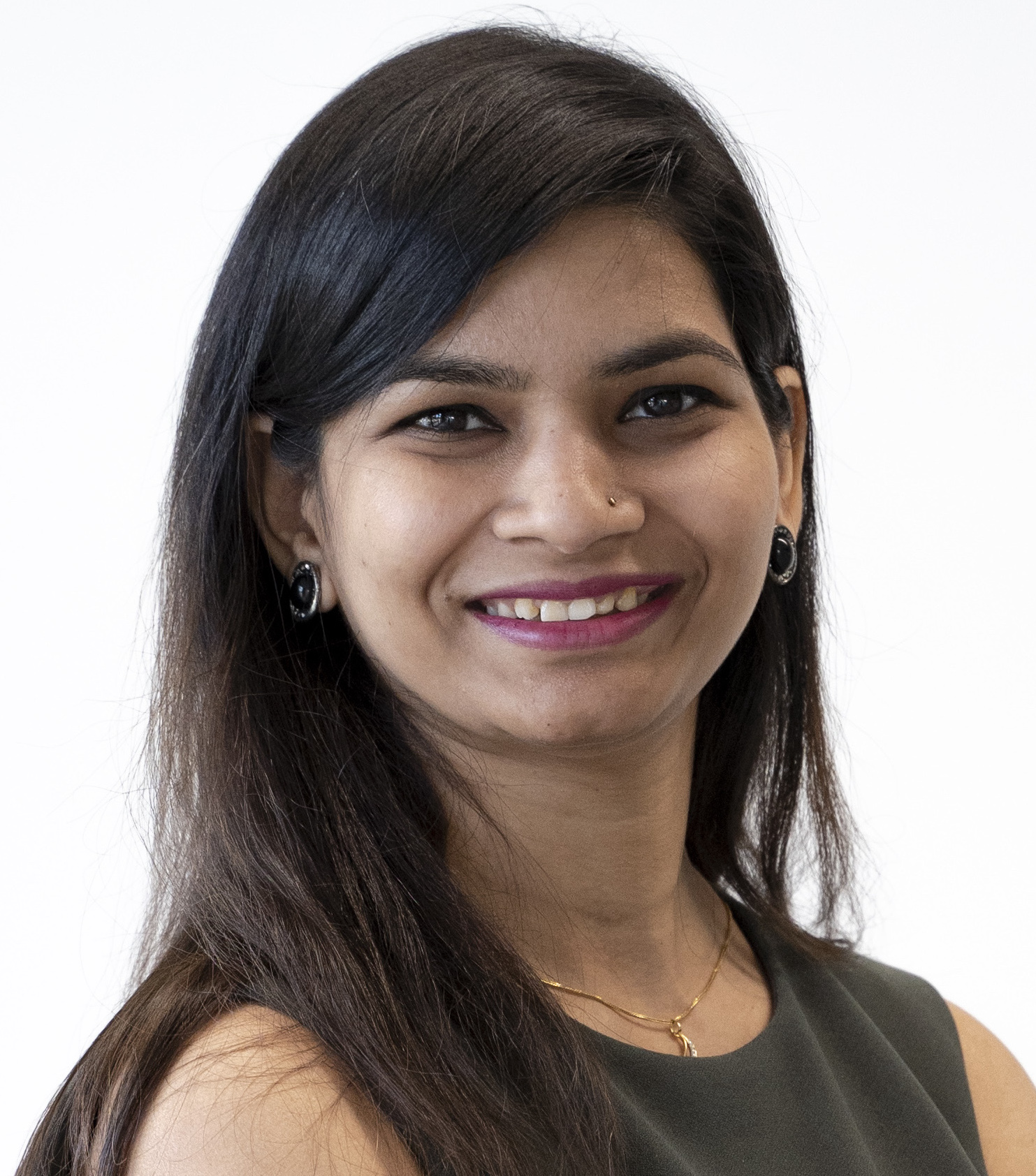 Namrata Srivastava, USA
Namrata Srivastava, USA
University of Pennsylvania
Interest in Learning Analytics (Research Area, etc.) & Interest in serving on the SoLAR Executive Committee: My interest in learning analytics started in 2016 during my doctoral studies when I was asked to explore how computer science techniques could be used to best support students and teachers in higher education. The discovery of the vast resources in this area left me both overwhelmed and exhilarated, realizing the significant impact a computer scientist could have. This marked the beginning of my journey in learning analytics, a field where I continue to grow and learn every day. My goal is to contribute to SoLAR’s mission by leveraging my expertise in AI and analytics to pioneer innovative educational tools and methodologies. Joining the SoLAR Executive Committee would not only provide me with a unique opportunity to engage closely with current and former stakeholders but also immerse me in the forefront of learning analytics research and practice. This engagement would be instrumental in deepening my understanding of the multifaceted challenges faced by SoLAR and its community of researchers and practitioners in learning analytics. It would empower me to contribute to developing strategic, innovative solutions that address these challenges head-on.
Biography: Dr. Namrata Srivastava is currently a Postdoctoral Researcher at the Penn Center for Learning Analytics (PCLA) at the University of Pennsylvania, United States. Prior to this role, she honed her research skills as a Research Fellow in the Centre for Learning Analytics at Monash University (CoLAM) in Australia for three years. Dr. Srivastava is an accomplished researcher with more than six years of experience in the field of learning analytics. With a PhD in Computer Science from the University of Melbourne and a thesis titled “Towards Sensor-based Learning Analytics”, she has developed a unique interdisciplinary skill set with expertise at the intersection of three different fields – data science, human-computer interaction, and learning analytics. Over the past years, Dr. Srivastava has advocated for the use of non-invasive sensors, such as eye-trackers and webcams, along with advanced data science techniques such as process mining and predictive analytics, to better understand individual learners’ characteristics and to guide the development of adaptive learning systems. Specifically, she has contributed to research projects such as FLoRA Project, where she developed models that can explain processes of self-regulated learning in web-based environments with the aim of predicting specific cognitive/metacognitive processes using multimodal data.
Working Group Interests: I am interested to be a member of the following working groups: 1. Events Working Group: Having previously served as student volunteers at large international conferences, I am eager to take on a more central role in events organization. My prior experiences have provided me with a comprehensive understanding of the logistical, administrative, and communicational aspects of event management. 2. Industry and Partnerships Working Group: My ambition is to bridge the gap between academic research in learning analytics and its practical, real-world applications. I aim to foster meaningful collaborations between academia and industry, facilitating partnerships that can propel forward the field of learning analytics.
 Wanli Xing, USA
Wanli Xing, USA
University of Florida
Interest in Learning Analytics (Research Area, etc.) & Interest in serving on the SoLAR Executive Committee: Dr. Wanli Xing’s research is focused on learning analytics, with a particular emphasis on STEM education and online learning. He designed and developed learning theory-informed computational technologies, with a strong focus on ensuring equity, fairness, and transparency in learning analytics. Dr. Xing is also adept at utilizing analytics, particularly in machine learning and data mining, to enhance educational strategies and practices. His work has not only been academically influential but also has a substantial real-world impact on K-16 students. Dr. Xing has a deep commitment to learning analytics and wants to continue making substantial contributions as an executive committee member of SoLAR. His journey with SoLAR began during his Ph.D. studies in 2014, marked by his first publication at the LAK and further participated in the Doctoral Consortium in 2015, showcasing his early dedication. Dr. Xing’s commitment to the field is further evidenced by his track record of publishing 13 papers at LAK so far. His service as a review committee member for LAK in 2019 and 2022 highlights his ongoing involvement and expertise. Dr. Xing’s research excellence has been acknowledged in the learning analytics community, with nominations and awards for the best paper at LAK 2021 and 2022, respectively.
Biography: Dr. Wanli Xing serves as the Informatics for Education Associate Professor of Educational Technology at the University of Florida. He is the director of both the Learning Engineering Virtual Institute and the Advanced and Inclusive Computing in Education Lab. Dr. Xing further showcases his leadership as the chair of the education program at the Warren B. Nelms Institute for the Connected World within the College of Engineering. His work has garnered multiple best paper nominations and awards at prestigious conferences such as LAK, IDC, AERA, and AECT. Dr. Xing has secured a total of 32 million dollars in grants from various esteemed institutions including NSF, IES, EIR, the Office of Naval Research, Florida Department of Education, and Schmidt Futures. He has contributed significantly to the field with 54 journal articles, enhancing the domains of educational technology and learning analytics. His publications appear in notable journals like Computers & Education, Computers in Human Behavior, The Internet and Higher Education (IHE), and IEEE Transactions on Learning Technologies. Furthermore, Dr. Xing is an active editorial board member for several journals including IHE and Distance Education and plays a key role in the organization and programming committees of LAK, AIED, and CSCW.
Working Group Interests: I am interested in becoming a member of Education Working Group, ECR Research Grant Working Group, or Inclusion Working Group.
 Lixiang (Jimmie) Yan, Australia
Lixiang (Jimmie) Yan, Australia
Monash University
Interest in Learning Analytics (Research Area, etc.) & Interest in serving on the SoLAR Executive Committee: Dr Lixiang Yan’s research in Learning Analytics focuses on integrating generative artificial intelligence and multimodal analytics to advance the understanding of the collaborative learning process in authentic learning settings. His works, especially in multimodal learning analytics and generative AI, showcase his innovative approach. His interest in serving on the SoLAR Executive Committee originates from his commitment to advancing the field of learning analytics. His experience in leading significant projects, developing innovative AI-based data analysis methods, and his active participation in the academic community align with the goals of SoLAR. He is motivated by the opportunity to contribute his insights and expertise to the broader learning analytics community, fostering growth and innovation in this vital area of educational technology.
Biography: Dr. Lixiang (Jimmie) Yan is an award-winning research fellow with a strong background in learning analytics, educational technology, and applied psychology. His expertise lies in machine learning, statistical analysis, and multimodal analytics. Dr. Yan holds a Ph.D. in Information Technology from Monash University and a Master’s in Applied Psychology from The University of Melbourne. He has made significant contributions to the field through his research and publications, notably at the International Learning Analytics and Knowledge Conference, where he has received accolades. His work focuses on exploring the intersection of technology and education, with a keen interest in multimodal learning analytics, generative artificial intelligence, and cognitive psychology. Dr. Yan’s professional journey includes impactful roles as a research fellow and assistant at Monash University, where he has led evaluations for major projects, developed automated data analysis methods using AI, and contributed to the academic community through various international journals and conferences. His dedication to advancing educational technology and learning analytics makes him an ideal candidate for the 2024 SoLAR Executive Committee.
Working Group Interests: Inclusion Working Group or Events Working Group
 Raghda Zahran, United Kingdom
Raghda Zahran, United Kingdom
Newcastle University
Interest in Learning Analytics (Research Area, etc.) & Interest in serving on the SoLAR Executive Committee:Having closely followed the advancements and potential impact of learning analytics, I am enthusiastic about contributing my skills, experience, and passion to the SoLAR esteemed committee. I actively engage with the higher education sector and collaborates within numerous institutions within and outside the UK. I have developed an explorative model around users improved practices and critical perspectives within the ethical frames of using analytics in higher education. I adopted a blended interrogative and design thinking approach to engage students as designers of useful analytics that would improve teaching, learning and support services. These experiences allowed me to develop a deeper understanding of analytics potential value for student engagement, performance, and overall learning experiences and colleagues’ planning and support to students. I firmly believe that learning analytics has the power to revolutionise education by leveraging data-driven insights to enhance student outcomes, optimise instructional strategies, and shape institutional policies. As an individual deeply committed to educational excellence, I am eager to actively participate in the committee’s efforts to drive innovation and foster transformation in this field. Joining the Learning Analytics Executive Committee would be an incredible opportunity for me to contribute my expertise, collaborate with like-minded professionals, and make a meaningful impact on the future of education through data-driven insights. I am excited about the possibility of working alongside esteemed colleagues who share a common vision for educational advancement.
Biography:Raghda Zahran, a Senior Fellow of the Higher Education Academy, brings a wealth of expertise as an academic leader across international higher education institutions. Her areas of focus encompass strategic educational planning, academics and students mentorship. She is also interested in academics’ autonomy in utilising emerging technologies. She delves into the influence of motivation on self-directed technology skills development and adaptability to technological changes. Raghda’s ultimate goal is to empower educators and learners to enhance their practices through effective technology utilisation.
Working Group Interests: Education, Industry Partnerships, A Special Interest Group
 Andrew Zamecnik, Australia
Andrew Zamecnik, Australia
University of South Australia
Interest in Learning Analytics (Research Area, etc.) & Interest in serving on the SoLAR Executive Committee: In the realm of learning analytics, my primary focus involves the collaborative design and creation of artificial intelligence tools tailored specifically for higher educational institutions. These tools are meticulously developed to empower learners through the strategic utilisation of AI capabilities. My keen interest lies in exploring the profound implications AI holds for learners, encompassing the enhancement of retention rates, improvement of learning outcomes, mitigation of risks, and the cultivation of equal opportunities for all learners. My aspiration to join the Society for Learning Analytics Research (SoLAR) Executive Committee, particularly in the Inclusion and Special Interest Working Groups, stems from my recent engagements that strongly align with these domains. Actively participating in global collaborations and projects, I contribute to the design of data-driven tools, including AI, to cater for non-traditional learners and address equity concerns. Recognising the dual potential of these tools to either provide opportunities or harm learners necessitates well-informed policy and development efforts. Leveraging my hands-on involvement and alignment with the aforementioned working groups, I believe my experiences position me effectively to contribute efficiently as a SoLAR Executive Committee member. My vision, interests, and experiences strongly align with the mission and vision of the SoLAR community.
Biography:Dr Andrew Zamecnik is a early career researcher at the University of South Australia (UniSA) with a PhD in learning analytics. Their PhD focused on applying learning analytics methodologies to understand, evaluate and support team cohesion in technology-mediated environments. He has previous experience working on data science and information technology projects. As a research fellow at UniSA, Andrew is working on research and industry projects to empower learners with AI in education, focusing on key aspects such as curriculum analytics, learner profiles and non-traditional learners in various learning environments. Andrew is committed to bettering the education of learners across all levels.
Working Group Interests: Inclusion and Special Interest Working Group
Voting Information: All SoLAR individual and students members are eligible to vote for all positions. Links to access the online voting system will be sent to SoLAR members through SurveyMonkey via email starting on January 25, 2024 (Eastern Time, no later than 8:00pm EST). Voting will end on February 8, 2024 at 11:59pm Eastern. All members who join SoLAR by February 5, 2024 will be eligible to vote and will receive a ballot after successfully joining SoLAR. Any questions, please email solarsocietymgmt@gmail.com.
January 18, 2024
Dear Learning Analytics Community,
We write to inform you that the SoLAR Executive Committee has made the difficult decision to cancel the integrated virtual component of LAK24 scheduled for March 18 -22, 2024. The number of virtual submissions and registrations for LAK24 is extremely low (i.e., 4.6% of LAK paper presenters have requested online presentation, 7% of registered LAK24 participants thus far registered for online format), although the overall number of in person submissions for LAK24 has reached a new record high.
The low number of virtual presentations is insufficient to create virtual paper sessions and the associated costs of running a hybrid conference (> US$ 60.0000) are substantial. Therefore, the Executive Committee has concluded that a virtual meeting is not viable this year as a meaningful or quality educational experience for accepted presenters or attendees. SoLAR joins many other societies and groups in responding to our community in making this decision.
SoLAR has reached out to the virtual paper presenters with options to ensure their paper is still part of the LAK24 proceedings and how their paper will be presented.
SoLAR continues to be committed to creating and holding events that are of the highest quality for presenters and attendees and we are pleased in addition to a fully in person LAK24 to offer a fully virtual Learning Analytics in Practice (LAP24) event June 18-20 (depending on your location in the world). In addition there are a number of local LASIs planned in different geographical regions throughout 2024.
Thank you for your understanding as we all continue to navigate in this changing world since COVID first arrived.
Sincerely,
Bart Rienties, President SoLAR on behalf of SoLAR Executive Committee
December 15, 2023
The SoLAR Communications team is pleased to present episode 20: Learning Analytics & AI: Opportunities & Challenges of the SoLAR Spotlight podcast.
This episode of the SoLAR Spotlight podcast series features Dr Aneesha Bakharia, University of Queensland, Australia and Professor Barbara Wasson, University of Bergen, Norway as guests, hosted by Shibani Antonette & Rogers Kaliisa. They converse about the recent advances in generative AI and tools like ChatGPT and how they relate to work in learning analytics that aims to improve teaching and learning with data. What is your takeaway from this podcast? What is the lie that Aneesha and Barbara told in the ‘two truths and a lie’ game? Let us know using the hashtag #SoLARspotlight on Twitter.
If you want to know more about SoLAR, get in touch via solaresearch.org or tweet us @SoLAResearch. Specific feedback may be sent to solar.spotlight.podcast@gmail.com.
Need to catch up on past podcast episodes? Review them all here: https://www.solaresearch.org/community/podcast/

